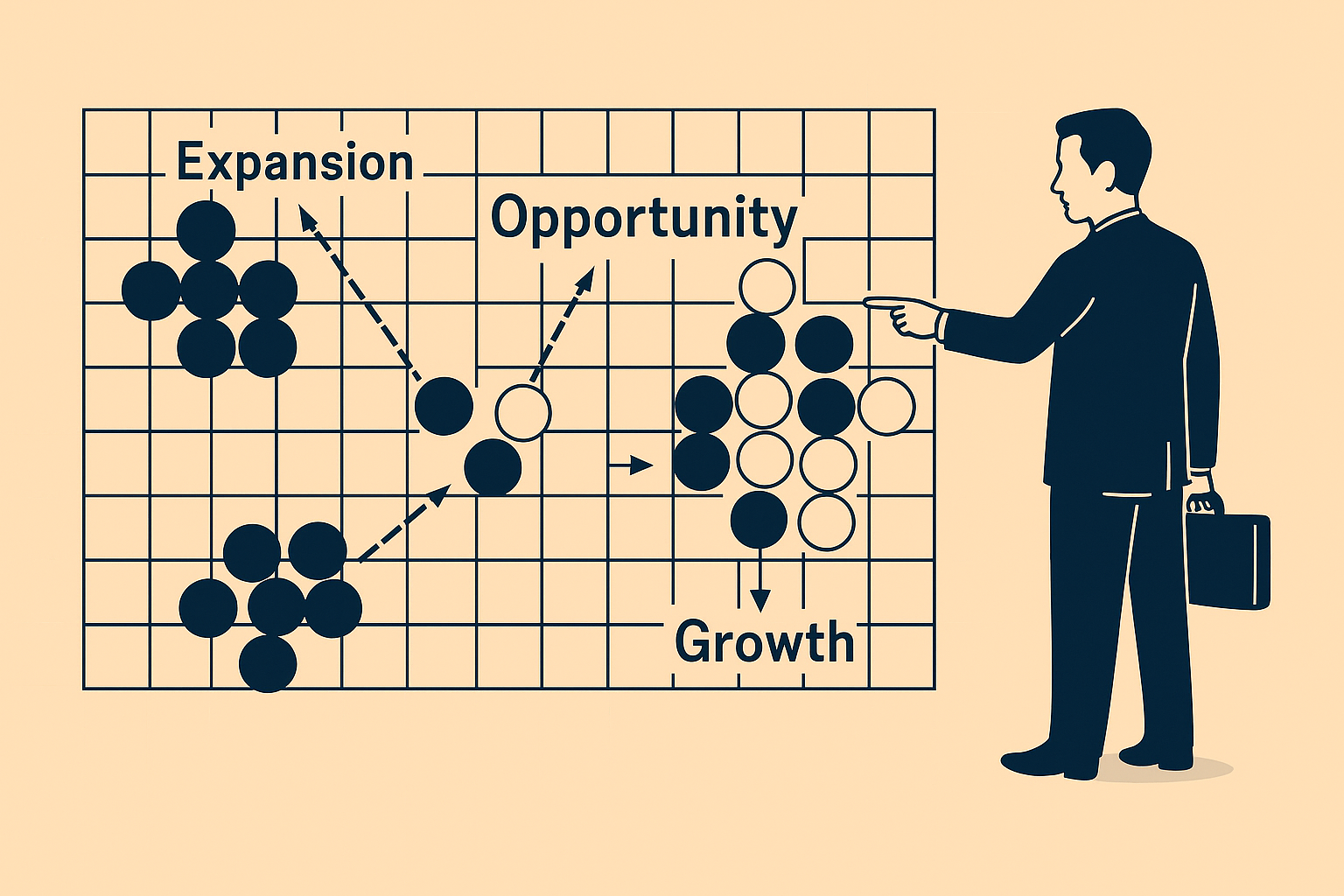In Go, two players place black and white stones on a 19×19 grid. Unlike chess pieces, stones do not move. Once placed, they influence the surrounding area — subtly shaping control of the board.
Victory isn’t about eliminating the opponent, but about occupying more territory through smart, long-term positioning.
If chess is about mobility and tactical confrontation, Go is about presence, patience, and strategic foresight. Both games teach valuable lessons — they’re not opposing philosophies, but complementary ones.
Here’s a link to learn about the rules of the GO game
Applied to sales: from pressure to presence
Rather than targeting the final decision-maker directly, Go-thinking in sales means:
- Building influence within the buyer’s ecosystem (champions, users, partners)
- Being present in the right channels before the buying process begins
- Creating value early, without pressing for the close
By the time the decision is made, your company is already part of the solution space. You’re not one vendor among others, you’re the familiar, credible choice.
Not a replacement but a strategic complement
There are times when direct selling is still the right move: Short cycles, single decision-makers, urgent needs.
But for complex sales, where multiple stakeholders, politics, or long timeframes are involved, a Go-inspired approach delivers stronger positioning and higher conversion over time.
This isn’t about replacing traditional sales methods. It’s about expanding your strategic toolkit.
Conclusion: winning before the pitch
When sales teams are trained to read the landscape, build trust over time, and occupy key zones of influence, they start shaping decisions.
In some sales, success is not about the final argument — but about the stones placed long before the deal even existed.

